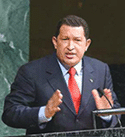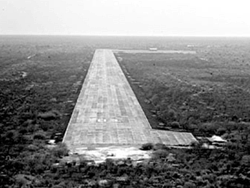
Few journalist killings fully investigated
In most cases, the

In most cases, the

SYDNEY – Texan Scott Parkin was deported from Australia last week after being deemed a threat to national security, the Sydney Morning Herald reports. The activist had participated in protests against the Forbes CEO Conference in
Parkin rejected government assertions that he was involved in violent political activity. "I am a student of mass social movements in the tradition of Mahatma Gandhi and Martin Luther King Jr., and I think that these movements have shown us the way to achieve positive social change," he said.

Your Excellencies, friends, good afternoon. The original purpose of this meeting has been completely distorted. The imposed center of debate has been a so-called reform process that overshadows the most urgent issues, what the peoples of the world claim with urgency: the adoption of measures that deal with the real problems that block and sabotage the efforts made by our countries for real development and life. Five years after the Millennium Summit, the harsh reality is that the great majority of estimated goals - which were very modest indeed - will not be met. We pretended reducing by half the 842 million hungry people by the year 2015. At the current rate that goal will be achieved by the year 2215. Who in this audience will be there to celebrate it? That is only if the human race is able to survive the destruction that threats our natural environment. We had claimed the aspiration of achieving universal primary education by the year 2015. At the current rate that goal will be reached after the year 2100. Let us prepare, then, to celebrate it.

In a speech at the Republican National Convention in 2004, President Bush referred to the United States as "the greatest country in the world". Certainly this is a sentiment that many Americans share, but what kind of objective basis is there behind the statement? It's time to take a closer look. Do we make the pronouncement because we are the wealthiest nation in the world? Based on Gross Domestic Product per capita, in 2003 we were not first but fourth. Luxembourg at $43,940 was considerably ahead of the US ($36,000) by a 17% margin. Norway and Switzerland were in between. Most of us believe we have the highest standard of living in the world. But according to the UN Human Development Report of 2004, their list of the world's most livable countries show the US in eighth place, four places behind Canada, and trailing Norway and Sweden in first and second place.

There's an old adage among investigative journalists: if you want to know what's really going on, ask the workers.
If you want to know what's really going on in Iraq - to American soldiers, to their families back home, to Iraqi women - read this column, and learn what I did at the historic AFL-CIO convention held this summer in Chicago.

Copyright Toward Freedom 2019